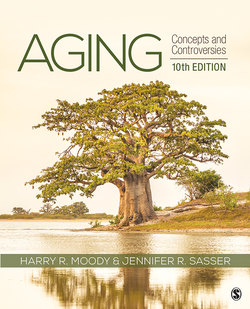Читать книгу Aging - Harry R. Moody - Страница 95
На сайте Литреса книга снята с продажи.
Some Questions of Semantics
ОглавлениеNuances of meaning may mask the substance of a subject, and slight changes in emphasis may allow a new perspective to be better appreciated. There are problems with several of the terms often used to describe health, medical care, and aging. Among these are cure, prevention, chronic, premature death, and natural death. We will use these terms in slightly different senses than is usual.
Cure is a term with application to few disease processes other than infections. The major diseases of our time are not likely to be cured, and we have tried to avoid this term. Prevention is better but is unfortunately vague; this term, as we shall see, is sometimes misleading. We prefer the term postponement with regard to the chronic diseases of human aging, since prevention in the literal sense is difficult or impossible. Chronic is a term usually used to denote illnesses that last for a long period of time. It serves as a general but imprecise way of distinguishing the diseases that may be susceptible to cure (such as smallpox) from those better approached by postponement (as with emphysema). Regrettably, this important distinction cannot be based solely on the duration of the illness, since some diseases that last a long time both are not chronic conditions and might eventually be treatable for cure (such as rheumatoid arthritis and ulcerative colitis). We limit our use of the term chronic to those conditions that are nearly universal processes, that begin early in adult life, that represent insidious loss of organ function, and that are irreversible. Such diseases (atherosclerosis, emphysema, cancer, diabetes, osteoarthritis, cirrhosis) now dominate human illness in developed countries. We have defined premature death simply as death that occurs before it must, and we have used natural death to describe those deaths that occur at the end of the natural life span of the individual….
